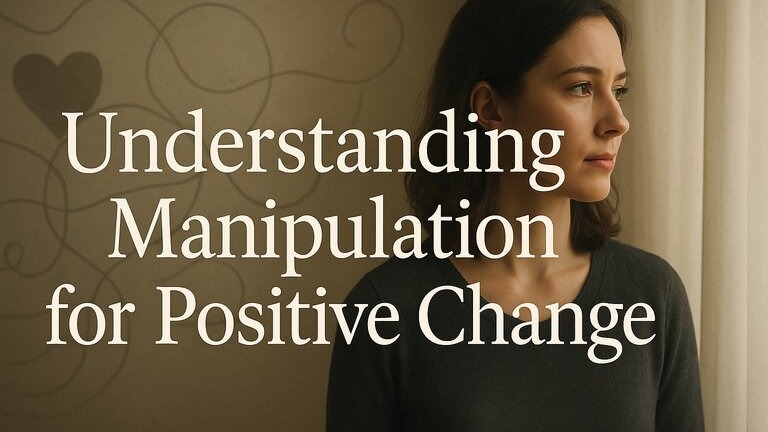
Understanding Manipulation for Positive Change
In the realm of human relationships, the desire to influence those close to us is nearly universal. From romantic partners to family members, we often find ourselves wishing others would change in ways we believe would benefit them.
This desire can be motivated by care, love, or even a desire for stronger connections. But what if this urge to change others isn't always effective, and at times, counterproductive?
In 'How to manipulate people for good according to this Harvard-Educated High Performance Coach', the discussion dives into relationship dynamics and effective strategies for behavior change, prompting a deeper analysis on our end.
Why Traditional Approaches Can Fail
When we think about trying to change someone, a common approach is criticism. Many of us have been conditioned to believe that pointing out flaws will inspire positive changes.
Think about that familiar situation: constantly reminding your spouse to pick up their clothes or encouraging your child to focus more on their studies. Over time, this can lead to frustration and feelings of resentment, resulting in emotional withdrawal.
Research shows that constructive criticism can feel violent to the brain, leading to defensive mechanisms rather than behavioral changes.
The Power of Positive Reinforcement
Instead of employing criticism, why not celebrate small successes and foster a nurturing environment? Acknowledging what someone does well can help them feel more confident and willing to embrace change.
This concept relates to the self-fulfilling prophecy; if we label someone positively, we're more likely to see those traits reflected back to us.
Relationships: The Balance of Expectations
When working towards relationship goals, it’s essential to set realistic expectations. Oftentimes, expressing appreciation for even minor efforts helps facilitate further progress.
It creates a positive feedback loop that encourages healthy behavior rather than instilling a sense of dread. Unlike focus on what’s missing, let’s strive to build on what’s present.
However, recognize that cultural differences and personal sensitivities can shape how compliments are received.
Navigating Male Mental Health: Depression and Anxiety
The conversation around emotional well-being is critical, especially for males. There is a common misconception that male depression manifests solely as sadness. In reality, it often expresses itself through emotional numbness, withdrawal, or even anger.
Recognizing that anger can be a symptom of underlying feelings is essential for understanding and addressing mental health. Open discussions about these feelings are a vital part of moving towards healing.
Strategies to Encourage Emotional Processing
So, what can one do to effectively process negative emotions instead of relying on emotional suppression? Engaging in physical activities like exercise or gardening can stimulate positive feelings, allowing individuals to process both negative and positive emotions organically.
The discussion initiated by the Harvard-educated coach also emphasizes that emotional processing doesn’t have to be a solitary or overly introspective activity. Instead, it could involve moving and creating—in a way, allowing emotions to flow naturally.
Overcoming Burnout in the Workforce
Burnout is a key concern in high-pressure environments like the spa industry. It doesn't occur overnight; rather, it builds up, often resulting from neglecting one’s needs in favor of juggling responsibilities. Awareness of when empathy begins to diminish is the first sign of burnout.
As spa owners or managers, fostering an environment where employees feel supported and appreciated can make all the difference in preventing burnout.
Final Thoughts: Empowering Change in Ourselves and Others
In summary, the desire to influence positive change in the people we care about should ideally come from a place of empathy and understanding rather than criticism and demand.
Whether you are a spa owner seeking to improve staff morale or a family member trying to foster better relationships, focusing on positive reinforcement can enhance connections and promote healthy behaviors.
Not only can these methods help transform the behavior of those around us, but by also managing our emotional health, we can create an enriched environment for ourselves and others.
As you think about your own relationships, consider how you might shift your approach to engaging with others. Could emphasizing their strengths lead to meaningful changes? Take that initial step today, and witness the transformations unfold. Remember, the goal is progress—not perfection.
Ready to start making impactful changes in your relationships? Contact us now for strategies and tools tailored to foster excellence in your spa operations!
 Add Row
Add Row  Add
Add 




Write A Comment